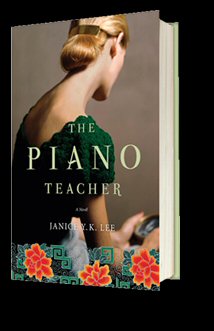Howard Norman’s readers owe a debt to both his journal- and letter-writing habits, which have aided him in bringing to life events so well that they seem tantalizingly abridged. Readers of a certain age may find themselves bemoaning lapses in their own past note-taking. In I Hate to Leave this Beautiful Place, Norman the novelist is able to draw sharp character and scenic detail that work especially well because these details play out as short stories carried in memoir form.
More than other forms, the traditional memoir is expected to follow a linear sequence. Indeed, Norman’s stories are mostly chronological. Likely most memoirs often depart from this, but the expectation is great. On the other hand, Norman makes occasional and dramatic use of jump cut. E.g.,
. . . So now I was a floor polisher.
The Cross of Lorraine tells the tragic story of the capitulation of the French Army . . .
This technique, coupled with non-chronological sequences, has the effect of keeping the reader off-guard. Readers should be off-guard as this memoir unfolds.
A single memoir, for instance, is expected to include a courtship story of a spouse or two. That expectation is dashed here, one suspects intentionally, as there is no mention of Norman’s spouse Jane Shore or daughter Emma until practically halfway through the text. One has the impression that these two are fellow travelers between the “beautiful places,” rather than the transformative presence that they more likely became.
The descriptions of place — flora and fauna, to be clear — are not always in the forefront of the storytelling, but they are thematically crucial to giving the arc of the memoir a pleasing shape. At times this gives the writing a didactic tone, albeit a gentle “you need to know this.” About the ornithological arts, the results can be unpredictable. When writing about his connection to a particular swan, or his penchant for purchasing “bird art” he can’t afford, this is engaging. When it’s on background, such as a glancing reference to an owl conference, it drifts toward nature writing. Norman is a careful writer, but he is not a science writer. He is relying on a tacit relationship between writers in the humanities and their audience: that features and forces of nature are intrinsically poetic or symbolic. I suspect most readers drawn to this memoir won’t mind, but there is so much of that in his storytelling that this assumed connection is tested repeatedly.
I woke up, put on the BBC, and stepped out onto the dirty road at five a.m. Crows calling and the scuffle of deer in the direction of the trout pond, hummingbirds at the fuchsia, Gertrude was just returning to the barn. Can you imagine what comprises an owl’s night? Already things I love most every day had happened.
It was a departure from the norm to read Beautiful Place in a single sitting. One reason was coincidental: the mentions of Jim Morrison, Joni Mitchell, rural Vermont, Western Michigan University, Lennon’s murder, Woodstock, garage bands, the multi-city continuity of NPR — most of all, Merwin’s Carrier of Ladders (1970), which I bought and read around the same time. As one who began writing on a typewriter, I recognize that the tradition of manual typewriter-wielding naturalist-writer is venerable. There is mention of Norman shopping for typewriter ribbons and working in a writer’s cabin. I did not find this anachronism endearing, though it deserves a certain respect for steadfastness of purpose. More effective was a narrative that finds a way to cite Saigyo, Denise Levertov, W.S. Merwin, Robert Frost, Paul Eluard, Louis Aragon, Hayden Carruth, Rita Dove, Rilke, W.H. Auden, Borges, spouse Jane Shore and Robert Hass.
Another reason for a single-sitting read was the crescendo of melancholy, which started early with Norman’s estrangement from his father, and moved steadily from unhappy to tragic. The last chapters of Beautiful Place try to resuscitate readers from the emotional catastrophes that ricochet through the narrative, but the pall of dread remains fixed.
I unconditionally recommend this work to the literary-minded. When Norman quotes Ryūnosuke Akutagawa (“What good is intelligence if you cannot discover a useful melancholy?”) and Nabokov (“memory perfume”) he could well be describing his own memoir. Readers will find much melancholy in his memories.
Yet somehow Norman’s world, despite his diligent ruminations, seems cramped. It pains one to say this. The places Norman has visited have been brought to life with tenderness and, in the case of the tragic circumstances in Norman’s D.C. area (one thousand book-containing) residence, agonizing. Still, so much of importance — so many places of importance — are omitted during that span of years. In fiction, this is by design. In memoir, the act of thoughtful autobiographical exposition creates an expectation of even greater perception.
What Norman writes of here are exquisite, dark little places.
Readings
Share book reviews and ratings with DV,
and even join a book club on Goodreads.
“The Extraordinary within the Ordinary: Photographs by Ahae”
Photographer Ahea photographed the nature around him on a daily basis for four years. The result was some 3,000 photos, some of which have been organized for an exhibition at the Orangerie garden at Versailles in France. As the NYT reported,
The images are organized in a way that creates a kind of surrealistic representation of a single day, beginning with a serene shot of water deer in the early morning, sentries inviting observers to experience the passage of time.
Readings
Share book reviews and ratings with DV,
and even join a book club on Goodreads.
Bittersweet Monologist Morsels
In the small ever-diminishing circle some call literary fiction, the role of narrator-monologist tends to be occupied by an articulate sort. It’s a technique that some may find quaint. Nevertheless, when it’s tried, the result can include unique psychological dimensions — introspection, delusion, or both, for example. I’m won over when it achieves a level of poetic diction, which in most fiction is a momentary affair.
In Mo said she was quirky, James Kelman adopts this technique by deferring dialog until page 101. In those first 100 pages, he offers up a narrator-monologist who is somehow at once both ordinary (even oppressed) and, at times, penetratingly insightful. Which is to say that monologist Helen speaks colloquially, but as one whose fretful, tormented ruminations expose fault lines along gender, fortune, fate and family. What Helen narrates is often dark.
Sad thoughts, sadness about the thoughts; the thoughts were not said in themselves, the sadness was from thinking about them, their lives, their lives were just poor, poor lives, the casino too and the people she saw and encountered day in day out, night after night after night, frittering and superficial and some horrible, just horrible, horrible people and all their horrible attitudes, going out into the night, avoiding the shadows, the back alleys and side streets, they didnt want to know about them (p. 41).
There’s a disturbing minor family mystery that begins our time inside Helen’s mind, and the plot’s starkness is a reminder of just how sharp ordinary — no, rudely domestic — pain can be. This narrator’s story is a solitary one, and the reader feels somehow lonesome, too. Like a friend one cherishes but one you must muster the courage to phone, it’s the time with Helen’s blurted-out insights you’ll find memorable. Uncomfortably so.
-Original Amazon review
Readings
Share book reviews and ratings with DV,
and even join a book club on Goodreads.
The Citizen – Soldier Gap
 Andrew Bacebich reviewed James Wright’s Those Who Have Borne the Battle (PublicAffairs 2012), and addressed a growing divide between U.S. citizens and the military establishment they subsidize. It’s more than “. . .the places like Iraq and Afghanistan [where] the United States still fights ambiguous no-win wars of elusive objectives.” Wright is concerned with a lack of engagement by cit
Andrew Bacebich reviewed James Wright’s Those Who Have Borne the Battle (PublicAffairs 2012), and addressed a growing divide between U.S. citizens and the military establishment they subsidize. It’s more than “. . .the places like Iraq and Afghanistan [where] the United States still fights ambiguous no-win wars of elusive objectives.” Wright is concerned with a lack of engagement by cit
izenry (apart from defense contractors, I must hasten to add). “A public disengagement from military service has lost an important check on Washington’s inclination to use force, with the result that the troops professed to be held in high regard are repeatedly misused and abused. Meanwhile, the v
acuous symbols like bumper stickers and pregame ceremonials that have supplanted substantive engagement between citizens and soldiers invite mockery and derision” (NYT Book Review, 27 May 2012, p 14).
In 2007, reviewer Bacevich, a history professor and former soldier himself, lost a son in the Iraq War.
Readings
Share book reviews and ratings with DV,
and even join a book club on Goodreads.
New York Times Sunday Book Review Snips
Some time ago, a devilish hobbyist/collector/imitator instinct took hold. What got my attention were occasional flights of fine prose writing in the New York Times Sunday Book Review section. As the quality of these snips continued at a fairly high level, it seemed worth collecting them on a separate page of the blog. If interested, navigate to these snips from the top right menu of this page, or bookmark this link.
Cinematic Canvas, Limp Brush

Janice Y. K. Lee
There is much to like in a book that appropriates a cinematic swath of the not-too-distant past and brings it into sharp focus. Why, then, does Janet Y. K. Lee’s first novel The Piano Teacher (Viking, 2009) leave an unsettled and incomplete aftertaste?
Despite the author’s seemingly glamorous recent background, she pulls no punches in delivering grim accounts of tortured lives lived beneath the conquering Japanese. These landmines of agony (based mostly upon historical fact) are saved for later in this story — a story so slow to take flight that it’s tempting to set this book aside for one better steered. But patience is its own reward, in this case delivered in the form of World War II’s Colonial Asian horror, and two romances. The romances are set apart by a decade but unified by geography and a common, curiously impassive love interest, Englishman Will Truesdale. What Trudy and Claire see in Will’s typically distant, sometimes damaged sensibilities is, if not mysterious, untold. (Perhaps he was more handsome than the author is willing to write, though Lee’s powers of description are often strongest when describing faces, bodies and clothing).
A few weeks later, she asked, ‘Why me?”
“Why anyone?” he answered. “Why is anyone with anyone?”
Desire, proximity, habit, chance. All these went through her mind, but she didn’t say a word.
“I don’t like to love,” he said. “You should be forewarned. I don’t believe in it. And you shouldn’t either.”
There’s a conscious and mostly successful attempt to paint Hong Kong as the background insinuating itself subtly into the foreground. When this succeeds, the result highlights the story’s cinematic canvas.
Dominick is one of those queer Chinese who are more English than the English, yet has no great love for them. Educated in them most precious way in England, he has come back to Hong Kong and is affronted by everything that is in the least bit crass — which is to say, everything — the swill on the streets, the expectorating, illiterate throngs of coolies and fishmongers.”
When less successful, the narration seems lifted from a period travel piece. Interspersed between the upper class chit chat, gossip and internment camp negotiations are stark descriptions that will shock you to sudden attention.
A young woman, Mary Cox, says her husband was grabbed by Japanese soldiers and made to clean up after bodies had been dragged along the street, shedding body parts like animals. They had to clear all the bodies before they got in the water supply and spread disease. He came home soaked in blood and bits of decaying flesh and wept before falling on the sofa, exhausted. He was gone the next morning. She hasn’t seen him since.
As the story unfolds, the reader must keep track of evolving plot threads and also adapt to style shifts. These shifts take the form of shorter segments rather than the full conventional chapters (e.g., the chapter labeled “1943”), which have the flavor of characters’ journal entries embellished into short story fragments. This later style might well have worked better throughout, since the style alternates between 50’s and 40’s scenes. Instead when they do appear later in the book, it’s a curious shift that compounds the temporal switchbacks that have occurred throughout.
Then there is the matter of the book’s title. True, the principal narrator is piano teacher Claire, but despite references to childhood practice, Claire’s connection to music is coincidental. Instead her teaching sessions with the daughter of a well-off family, Locket, are memorable for her interactions with household staff, descriptions of food and clothing, and vaguely hinted-at dark moments from the past. Music plays no role in this; in fact, much later, when Claire is asked to play for a group of adults, she is desperate to find a way to avoid playing. You will not be alone if you finish The Piano Teacher without a single lingering melody.
This may have been as intended. The character who is “trying to become invisible, so that she will be all the more visible around Will” dimly senses that her skill as a pianist is a sort of deformity, not unlike Will’s limp from a wartime injury. But this doesn’t explain why the skill that gives her entree into the central plot becomes the role given billboard status for the novel. Writ large, it’s as though the novel’s wartime privations become a power for dissociation and confusion in which Lee’s prose is complicit.
A passage representative of this discipline describes a loyal amah who followed a family after they had been interned during the war. She brought them food and supplies into the camp in a large picnic basket. Because she had known them from childhood, she brought food every week:
. . . until one week she had not appeared. The day after she was to have come, the family received the same picnic basket. Inside was a small hand, wrapped in dirty towels. “They thought it was a funny joke. Of course”, [Will] said, “the truly sadistic Japanese were the exception, but they were all we could think about and all we ever remember. We never knew what happened, whether she had offended someone or done something wrong or was just in the wrong place at the wrong time.”
The story was his apology. She knew he didn’t owe him one. This was how she knew his affection.
Italics mine. The narration ends there, and moves impassively on to describe the couple’s arrival at Macau Station and a striking portrait of a governor, “with mustache and white hat.” The reader is swept along in such eddies of helplessness, of disorder dissolving into surface order.
The Piano Teacher succeeds in drawing parallels between the fateful directions taken in the affairs and the fate that befell Hong Kong after the Japanese occupation. But because its characters are themselves not always capable of making sense of what has befallen them, the book lacks a certain clairvoyance of purpose, or at least enlightened telling of the adversities.
One is tempted to point to stereotypes of Asian cultural passivity, a much-decried Western cliche to explain this, but a more plausible explanation (especially considering that the author is Asian herself) is surely that Lee’s characters are too much a part of the landscape that envelopes them: like narrator Claire’s self-avowed chameleon-ism, allowing fate to wash over them, accepting it with lament, wry comment, disdain, or simply striving to look ahead to the normalcy that it’s hoped will befall them just as surely. Perhaps the stereotype belies a more careful interpretation. William James wrote in “Varieties of Religious Experience” :
When, for example, Achilles, about to slay Lycaon, Priam’s young son, hears him sue for mercy, he stops to say:
“Ah, friend, thou too must die: why thus lamentest thou? Patroclos too is dead, who was better far than thou…. Over me too hang death and forceful fate. There cometh morn or eve or some noonday when my life too some man shall take in battle, whether with spear he smite, or arrow from the string.” *
* Iliad, XXI., E. Myers’s translation.
Then Achilles savagely severs the poor boy’s neck with his sword, heaves him by the foot into the Scamander, and calls to the fishes of the river to eat the white fat of Lycaon. Just as here the cruelty and the sympathy each ring true, and do not mix or interfere with one another, so did the Greeks and Romans keep all their sadnesses and gladnesses unmingled and entire.
Lee leaves convincing traces of a deeper, if calmly laconic, insight. “So that’s how it goes, [Will] thinks. That’s the beginning of how it all changes. We become survivors or not.” And later:
The reunion is sweet, the late afternoon sun slanting through the window, the flat horizon of the sea and the boats floating in the harbor, and Trudy, right here, right next to him. He has thought of her for so long, missed the feel of her skin and the smell of her breath, that he moves as if he’s in a dream, She is quiet, more than usual, and seems skittish. They are both too sapped, too thirsty, to ever be quenched by something as mundane as the physical.
But wait — this is Will, who has done little to earn his place in the hearts of the women he was typically at pains to claim he did not love. Whether betrayed by him, or simply wounded by his stubbornness, Trudy deserves more. His other lover, the adulterous but increasingly sympathetic Claire seems to wander through the plot looking for her own denouement; when it comes as an anticlimactic exit, some readers won’t care, or find the exit to be a cynical symbol of the character’s failure to carry a greater burden of the story.
At times this is lovely work, drawn in pastels of a fateful stillness. Perhaps Lee’s next canvas will be equally broad, taking from a history no less rich, no less stark, but wielding a sharper brush, filling out characters capable of making just a little more sense of what they experience.
(c) 2009 by Mark Underwood
Readings
Share book reviews and ratings with DV,
and even join a book club on Goodreads.
- « Previous Page
- 1
- …
- 3
- 4
- 5
- 6
- 7
- Next Page »




















